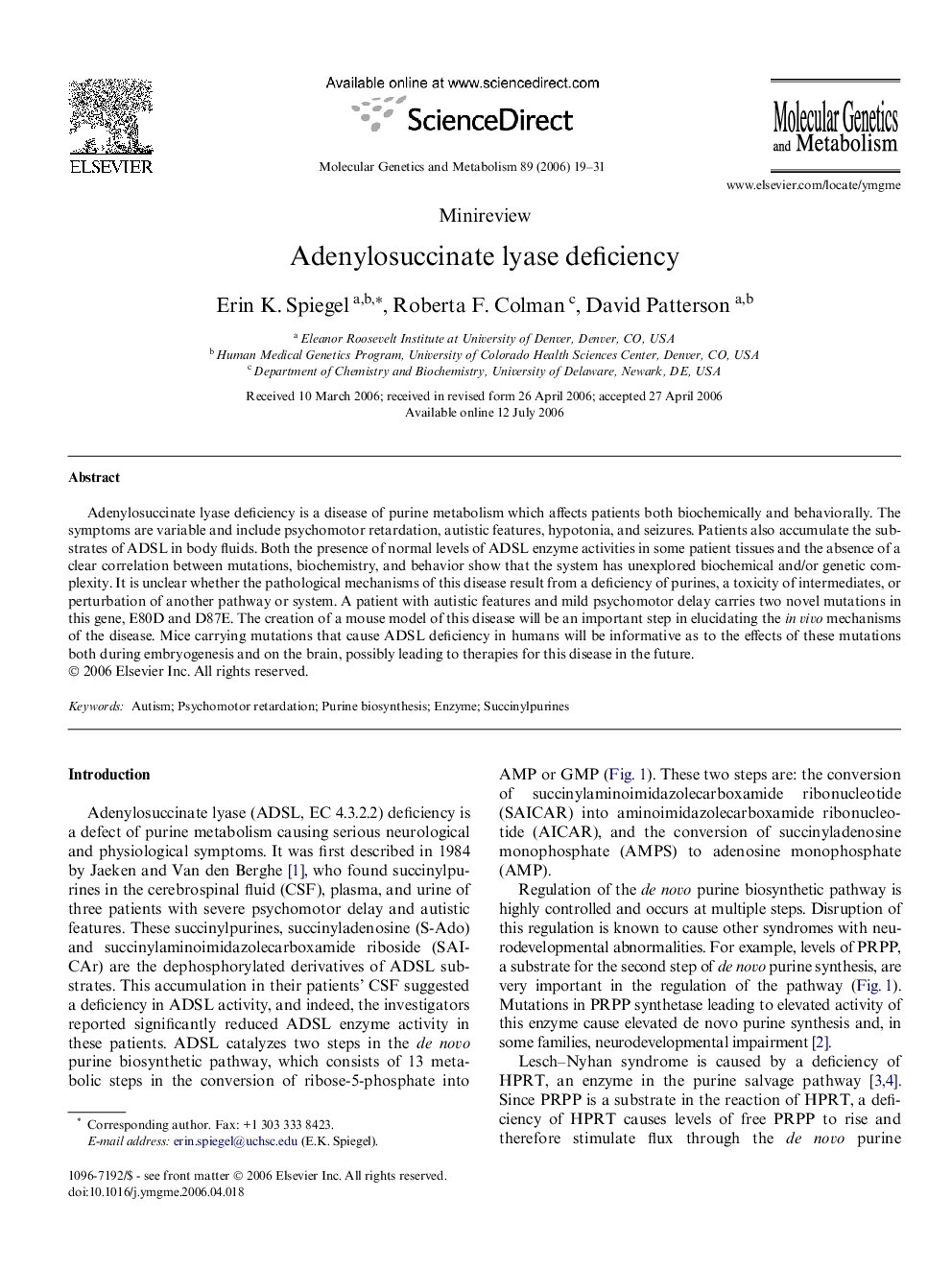| Article ID | Journal | Published Year | Pages | File Type |
|---|---|---|---|---|
| 2000287 | Molecular Genetics and Metabolism | 2006 | 13 Pages |
Adenylosuccinate lyase deficiency is a disease of purine metabolism which affects patients both biochemically and behaviorally. The symptoms are variable and include psychomotor retardation, autistic features, hypotonia, and seizures. Patients also accumulate the substrates of ADSL in body fluids. Both the presence of normal levels of ADSL enzyme activities in some patient tissues and the absence of a clear correlation between mutations, biochemistry, and behavior show that the system has unexplored biochemical and/or genetic complexity. It is unclear whether the pathological mechanisms of this disease result from a deficiency of purines, a toxicity of intermediates, or perturbation of another pathway or system. A patient with autistic features and mild psychomotor delay carries two novel mutations in this gene, E80D and D87E. The creation of a mouse model of this disease will be an important step in elucidating the in vivo mechanisms of the disease. Mice carrying mutations that cause ADSL deficiency in humans will be informative as to the effects of these mutations both during embryogenesis and on the brain, possibly leading to therapies for this disease in the future.
